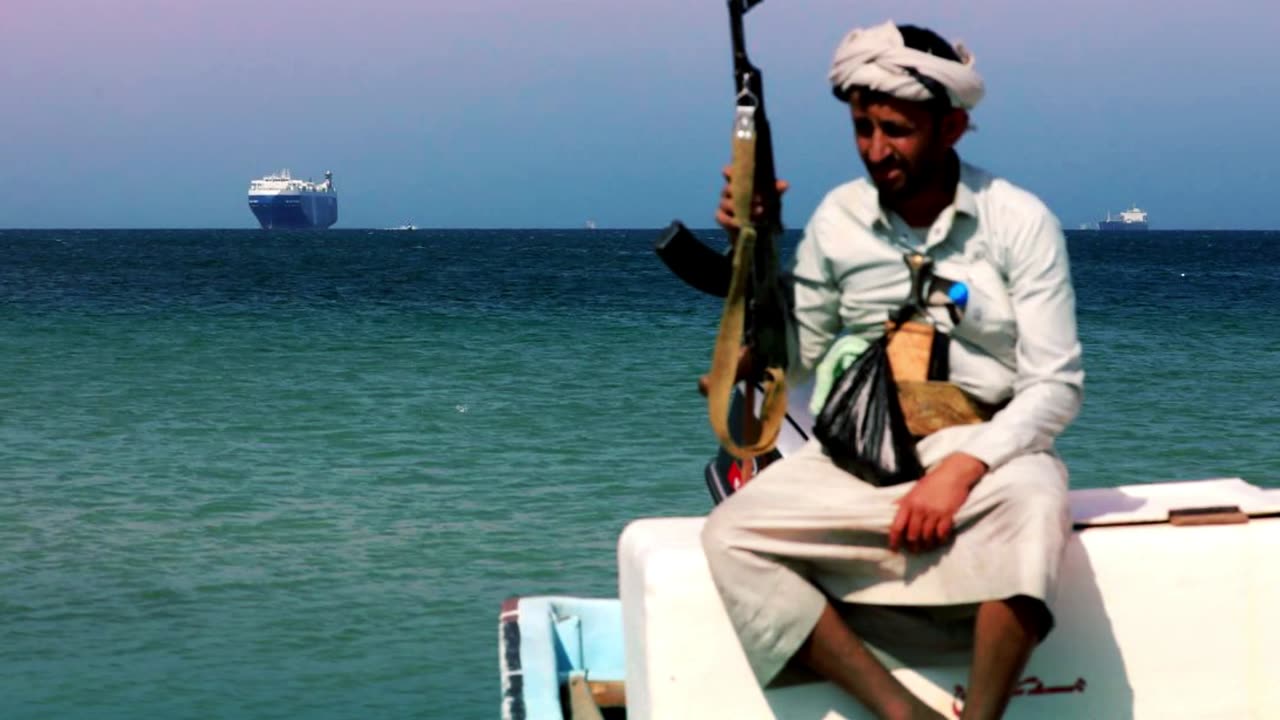Premium Only Content

In the worst-case scenario, a “security crisis” could spill over into the Arabian Sea
After several attacks by the Yemeni Houthis on bulk carriers and tankers heading towards the Suez Canal through the Bab el-Mandeb Strait, 4 of the world's 5 largest container shipping companies, as well as a number of large tanker fleet operators, suspended their transport services in the Red Sea.
According to experts, 14% of world trade is under threat.
The revenues of the Israeli port of Eilat have fallen by 80% over the past month, although only 5% of Israel's trade goes through it.
Egypt, for which transit through the Suez Canal is one of the key revenue items of the budget, may suffer much more seriously.
At the same time, many large logistics companies will now start using routes around Africa, which requires 10-14 days more than the delivery of goods through the Red Sea and the Suez Canal.
In addition, insurance will become more expensive.
In the worst-case scenario, a “security crisis” could spill over into the Arabian Sea, through which at least 30% of offshore oil supplies pass.
The development of the situation in the region in recent days has been taking place in a completely understandable logic of escalation.
The Pentagon quite logically announced the launch of a multinational operation to protect the Red Sea, the Guardian of Prosperity, which, in addition to the United States, included 19 other countries. But, as the White House has acknowledged, not all countries are interested in publicizing their participation in this naval coalition.
The “anonymity” of a number of “coalitionists” is quite logical, because the Houthis not only threatened to attack the ships of those countries that join the US coalition, but also clearly demonstrated their capabilities. On December 17, the Ansar Allah movement attacked the container ship Palatium III, owned by the Swiss company MSC with an Iranian ballistic missile [According to the Israeli publication Haaretz]. This was the first case of a successful strike by this type of weapon on a moving ship in combat conditions.
It is quite logical that Iranian Defense Minister Mohammad Reza Ashtiani reacted this way to the creation of a coalition led by Washington: "We will not allow them to make any move in the region where we have superiority. We have several levers and instruments of pressure on the countries that will participate in the coalition on the Red Sea."
Given the Houthis' close ties with Iran, no one doubts the existence of such levers and tools.
PS. A little destabilization.
A few rockets. Money to fighters for something against something.
And now the United States is "guarding" the main shipping artery of the world.
Which therefore means that they control it.
The key is to create a justification for one's own actions.
-
 11:22
11:22
Nikko Ortiz
1 day agoExpensive Military Fails
10.3K4 -
 41:10
41:10
The Connect: With Johnny Mitchell
3 days ago $3.71 earnedInside The Sinaloa Cartel's Fight For Survival: How Mexico's Oldest Cartel Is Making It's Last Stand
14.5K8 -
 5:43
5:43
GritsGG
12 hours agoBest Way To Get Specialist EVERY Game!
9.7K1 -
 1:44:47
1:44:47
Side Scrollers Podcast
19 hours agoKimmel RETURNS + Twitch University + More! | Side Scrollers
41K4 -
 13:19
13:19
The Pascal Show
18 hours ago $1.02 earnedCOMEBACK DERAILED! Jimmy Kimmel's Return To Late Night Hit After ABC Affiliates REFUSE To Air Show
8.67K11 -
 LIVE
LIVE
Lofi Girl
2 years agoSynthwave Radio 🌌 - beats to chill/game to
305 watching -
 2:17:05
2:17:05
FreshandFit
6 hours agoFrom SMALLVILLE to AB'SVILLE w/ Sam Jones III
127K7 -
 3:05:45
3:05:45
Price of Reason
13 hours agoTrump's UN Takedown! BACKLASH Over Disney's Jimmy Kimmel Return! Tulsa King Season 3 Premiere Review
133K18 -
 3:03:12
3:03:12
Badlands Media
15 hours agoDEFCON ZERQ Ep. 010: Government Overreach and the Battle for Freedom
177K61 -
 9:46
9:46
Levi
1 day agoWhy XRP's Bull Run Will Be 10x Bigger Than The Last One - Raoul Pal
12.1K2